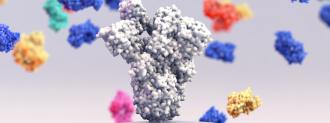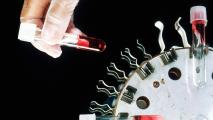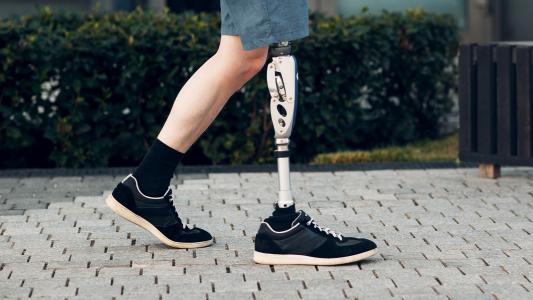An antibody cocktail developed by AstraZeneca was highly effective at preventing symptomatic COVID-19 infections in a recent trial — incredibly good news for people who need more protection than a vaccine can provide.
The challenge: For most people, the currently available COVID-19 vaccines are highly effective. But some people have conditions that prevent them from getting vaccines or that dampen their immune response to the shots.
Many people with compromised immune systems, such as those with organ transplants or cancer, don’t develop antibodies even after two doses of the vaccines.
The existing COVID-19 vaccines are also less effective against the fast-spreading Delta variant, so these people may be even more vulnerable now than they were when they first got vaccinated.
The antibody cocktail: Vaccines might not be our only way to provide long-lasting protection against COVID-19, however.
Protection from the antibody cocktail is expected to last up to 12 months.
After a person overcomes a COVID-19 infection, their blood contains antibodies that detect and disable the coronavirus. Antibody drugs are developed from those cells, usually so they can be given to people to treat an infection.
Using cells donated by COVID-19 survivors, AstraZeneca developed a pair of drugs that it combined into a single antibody cocktail, called AZD7442.
The initial plan was to try to treat people who are already sick, but after treatment trials failed to show results, the company pivoted to seeing if the drug could prevent the disease.
Robust protection: On August 20, AstraZeneca announced that a single injection of its antibody cocktail was 77% effective at preventing symptomatic COVID-19. The clinical trial involved nearly 5,200 people, who received either a single dose of the drug or a placebo shot.
All of the participants in the trial were either at high-risk of infection (like healthcare workers) or with comorbidities that can reduce the efficacy of vaccines. The drug was well-tolerated, with adverse events split about equally between the treatment and placebo groups.
“[The drug] could help people who may need more than a vaccine to return to their normal lives.”
Myron J. Levin
The data, which ran through about 6 months, suggests that protection is expected to last up to 12 months.
“With these exciting results, AZD7442 could be an important tool in our arsenal to help people who may need more than a vaccine to return to their normal lives,” Myron J. Levin, the trial’s principal investigator, said in a press release.
Looking ahead: AstraZeneca plans to submit the data from the trial for publication in a peer-reviewed journal. It’s also going to apply for an emergency use authorization from the F.D.A., with the hope of securing it before the end of the year.
If authorized, AZD7442 will likely be more expensive than the available vaccines, as antibody drugs are more difficult to mass produce.
That makes the drug highly unlikely to replace vaccines, but it could still find favor with people who need more protection than a vaccine can offer. The antibody cocktail could also give people who can’t get vaccines — or simply don’t want to — an alternative option.
Update, 10/11/21: A second trial, testing AstraZeneca’s antibody cocktail as a treatment, found that high-risk COVID-19 patients treated within 7 days of showing symptoms had their risk of dying or developing severe COVID-19 reduced by 50% compared to placebo. The company is now asking the FDA to authorize the drug’s use as a COVID-19 treatment.
We’d love to hear from you! If you have a comment about this article or if you have a tip for a future Freethink story, please email us at tips@freethink.com.






